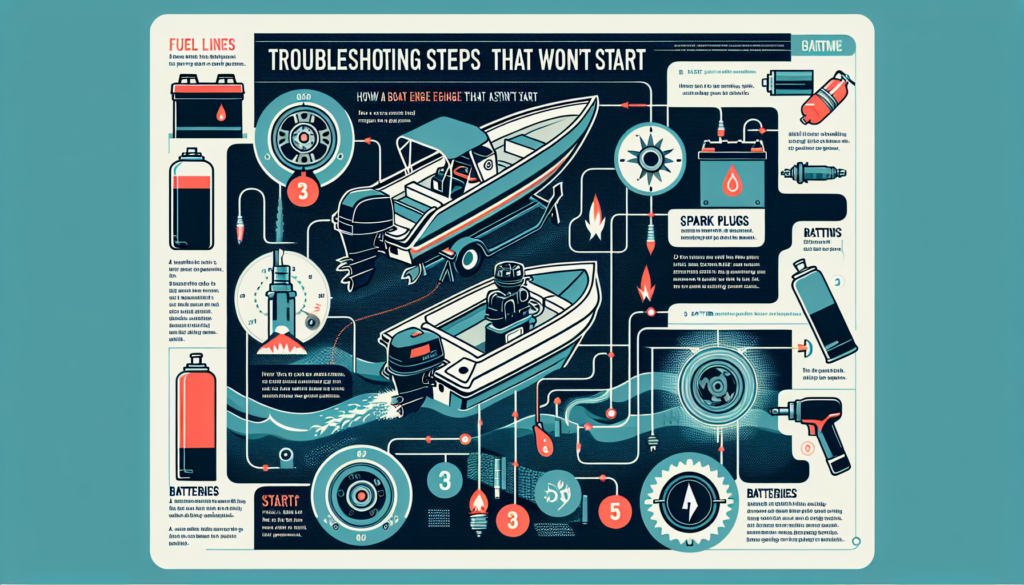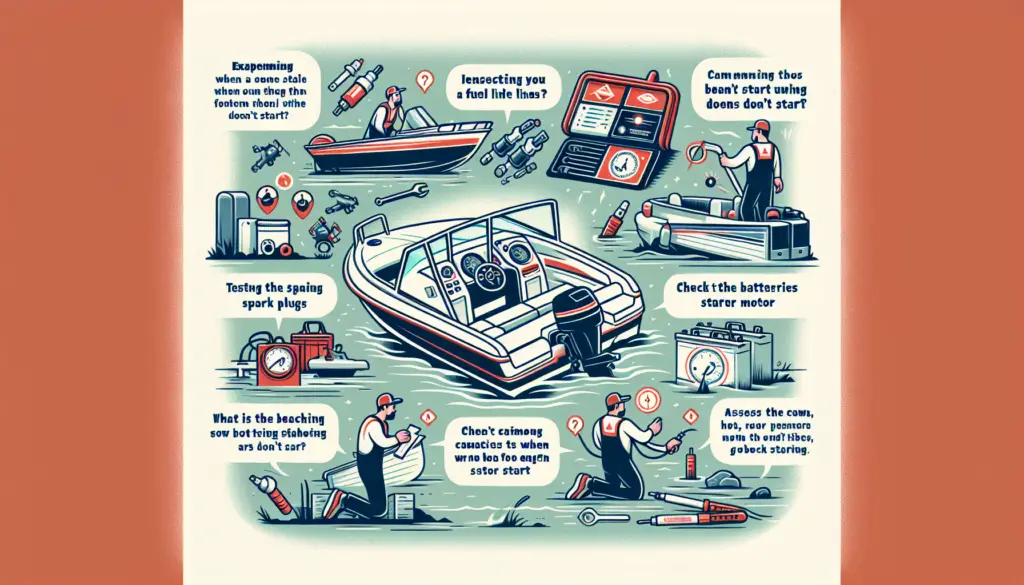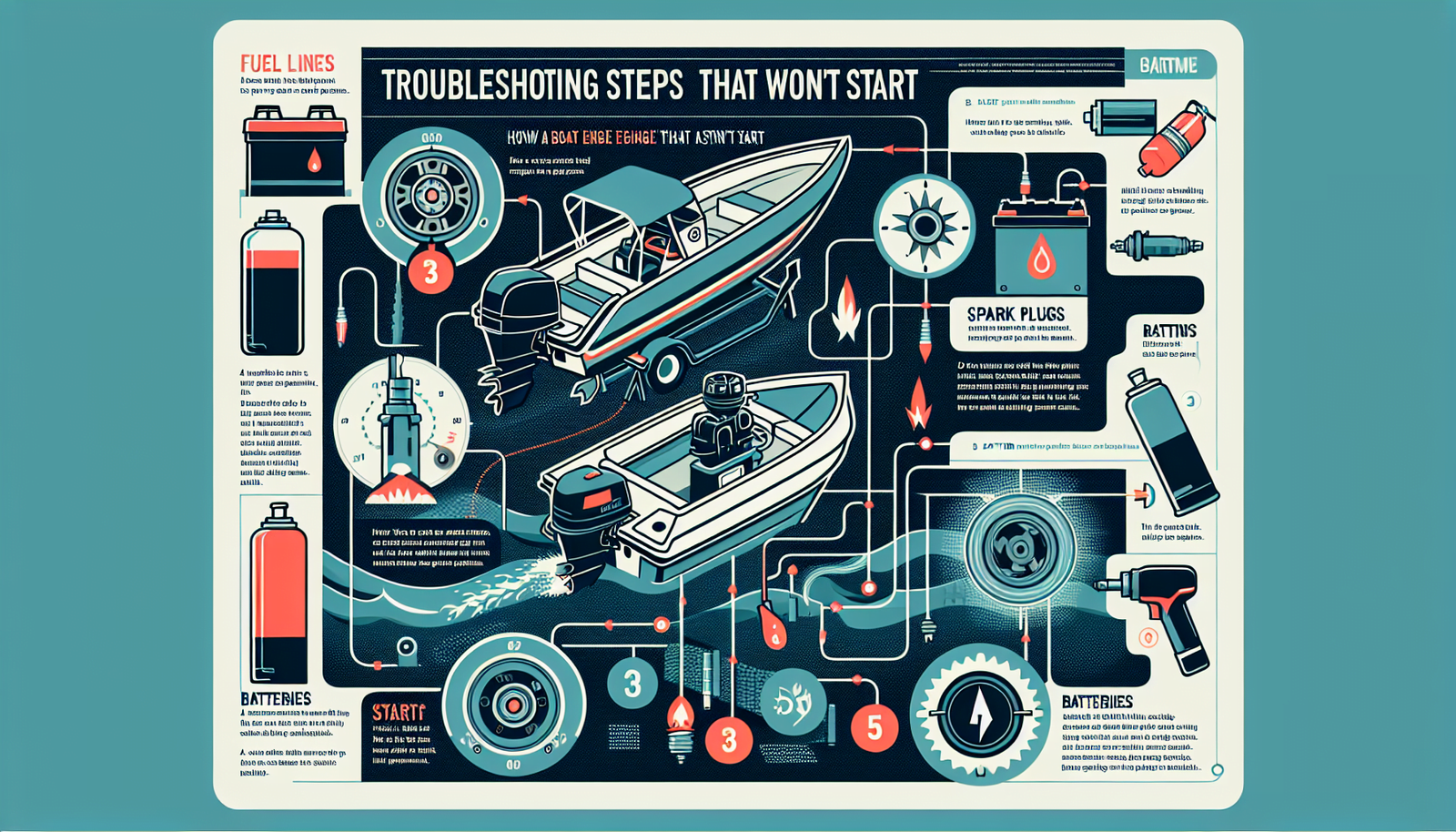In “What To Do When Your Boat Engine Won’t Start”, you’ll find handy and immediately applicable solutions designed specifically for those frustrating times when your boat engine unexpectedly refuses to start. It’s a guide full of expert advice, simplifying your troubleshooting process and empowering you with practical know-how to get your vessel back on the water. This way, you can quickly and confidently handle such predicaments at sea yourself, minimizing downtime and maintaining your boating adventures uninterrupted.

Understanding Why Boat Engines Fail to Start
Have you ever packed for a day of sea adventure only to have your boat engine fail to start? It’s disheartening, right? Understanding why boat engines fail to start can help you prevent this and enjoy your sea adventures uninterrupted.
The Importance of Understanding Your Boat’s Engine
Understanding your boat’s engine is key to smooth and uninterrupted sea adventures. This knowledge doesn’t just help you fix engine issues when they arise, but also helps you prevent them by taking timely precautions. Regular maintenance is always far easier and less expensive than unexpected repairs right before you’re about to set sail.
Common Reasons for Boat Engine Failure
Several culprits could be behind your boat engine’s failure to start, including issues with the fuel system, ignition system, battery, starter motor, engine cooling system, engine compression, carburetor, or the electrical system.
Recognizing Signs of Engine Troubles
Being aware of the symptoms of engine troubles helps you address them before they worsen. These symptoms could be anything from unexplained engine noises to poor fuel economy, overheating, or even sudden power loss.
Assessing the Fuel System
The fuel system is one of the first areas to check when your boat engine refuses to start.
Checking the Fuel Level
An empty tank is one of the most common and easily fixable causes of engine trouble. Ensure you have enough fuel for your trip.
Inspecting the Fuel Line for Leaks or Damages
The fuel line transports fuel from the tank to the engine. If it’s leaky or damaged, it’ll compromise fuel flow, hence preventing the engine from starting.
Assessing the Fuel Filter for Clogs or Dirt
If the fuel filter is clogged with dirt or debris, it can restrict fuel flow and prevent the engine from starting. Regularly inspect and clean the fuel filter to prevent this.
Checking the Fuel Pump’s Functionality
A faulty fuel pump cannot provide the required fuel quantity and pressure to the engine, which can prevent it from starting. A boat mechanic can help with pump inspections or replacements.
Examining the Ignition System
The ignition system sparks the air and fuel mixture in your engine, initiated by the turning of the ignition switch.
Understanding the Basics of the Ignition System
Consisting of your spark plug, ignition coil, and distributor, the ignition system initiates combustion.
Testing the Spark Plugs for Sparks
Spark plugs could wear out or get corroded, compromising the ignition system’s ability to start the engine. Regular maintenance can prevent such issues.
Checking the Ignition Switch and Kill Switch
If the ignition switch and kill switch are improperly set or malfunctioning, your boat engine will not start.
Inspecting the Ignition Coil for Damages
An ignition coil that’s damaged can’t build enough voltage to spark the fuel and air mixture, leading to startup failures.

Inspecting the Battery
A failing battery can cause startup issues in boats, especially in lake or seawater where you can’t pull-start your engine like it were a lawnmower!
How to Properly Check a Boat Engine’s Battery
Observe the battery for signs of corrosion or leaks. If it’s intact, you can test its output with a voltmeter.
Understanding the Different Types of Boat Batteries
marine batteries are of two types: starting batteries, that provide a large burst of power to start the engine, and deep-cycle batteries that deliver consistent power over a long period.
Measuring Battery Charge Level with a Voltmeter
A voltmeter allows you to monitor your battery’s charge level. Undercharged batteries can affect engine start.
Tips for Maintaining Your Boat’s Battery
Maintain the water levels in the battery and periodically clean the battery terminals to prevent corrosion.
Observing the Starter Motor
The starter motor plays a crucial role in starting the boat’s engine.
Understanding the Function of a Starter Motor
The starter motor triggers the engine’s operations by cranking the engine to draw fuel and air into the cylinders.
Identifying Signs of a Faulty Starter Motor
A faulty starter motor might not be able to turn on the engine. Signs could include strange noises or failure to crank the engine.
Exploring Steps on How to Test Your Starter Motor
Typically, you can test your starter motor by bypassing the other parts of the ignition system for a direct start.
Assessing the Engine Cooling System
Without proper cooling, your boat’s engine can overheat, leading to significant damage.
The Role of the Cooling System in a Boat Engine
The cooling system in your boat’s engine controls its operating temperature, preventing overheating, and thus damage.
Looking for Leaks or Blockages in the Cooling System
Leakages or blockages in the cooling system compromise its functionality and can cause the engine to overheat.
Checking the Functionality of the Water Pump
The water pump circulates coolant through the engine, failure or malfunction of this pump can cause overheating.
Considering Engine Compression Issues
Engine compression is crucial for your boat’s power and efficiency.
Understanding What Engine Compression is and Why it’s Crucial
Engine compression is the pressure that builds up from the mixture of fuel and air. It aids the functionality of the engine.
Signs of Engine Compression Issues in a Boat
Poor performance, difficulty starting, or excessive exhaust smoke could indicate compression problems in your boat engine.
Steps to Check Engine Compression
Using a compression gauge, you can find problems with compression to mitigate them promptly.
Looking into Carburetor Problems
Your boat engine’s carburetor plays a vital role in fuel delivery.
The Function of a Carburetor in a Boat Engine
The carburetor mixes the correct amount of air and fuel for combustion. Any malfunction hampers this balance, causing the engine to stall or not start.
Typical Carburetor Problems That Prevent Engine Start
Use of stale fuel or debris build-up can cause carburetor issues. Regular cleaning can help prevent this.
How to Check and Clean Your Boat’s Carburetor
Observe the carburetor for any visible clogs or fuel leaks. To clean it, you will need a carburetor cleaner, compressed air, and some basic tools.
Analyzing Potential Electric System Issues
Failure in the boat’s electrical system can prevent various components from functioning.
Understanding How the Electric System Interacts with Your Boat Engine
The electrical system powers crucial parts of your boat like the ignition system, radio, lights, and pump.
Recognizing Symptoms of Electrical Failures
Dimmed lights, weak signals, or flickering gauges could show a failing electrical system.
Steps for Diagnosing Electrical Problems
You can use a multimeter for diagnosing electrical issues related to the boat engine.
When to Call a Professional Marine Mechanic
Despite your best efforts, there might be times when you’ll need professional help.
Identifying Situations When Professional Help is Needed
If your efforts have proven futile, or the situation seems beyond your knowledge and skill, it’s best to call a professional.
Tips for Choosing a Reliable Marine Mechanic
A reliable marine mechanic will have good credentials, positive reviews, and provide transparent pricing.
Understanding the Potential Costs of Boat Engine Repairs
Boat engine repair costs can vary greatly depending on the issue. Your mechanic should be able to provide an estimate. Transparent, upfront communication about costs can save you from unpleasant surprises.

